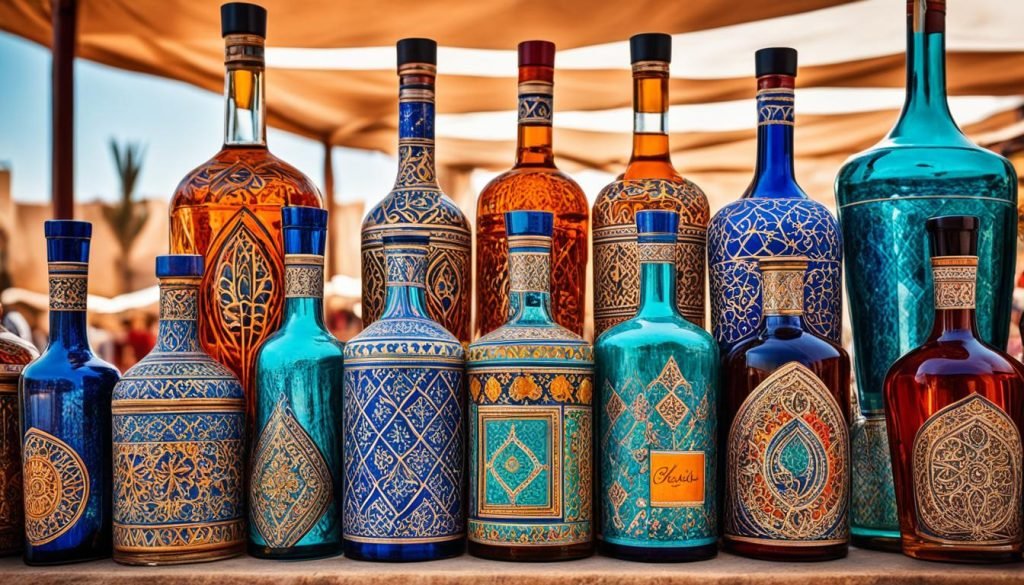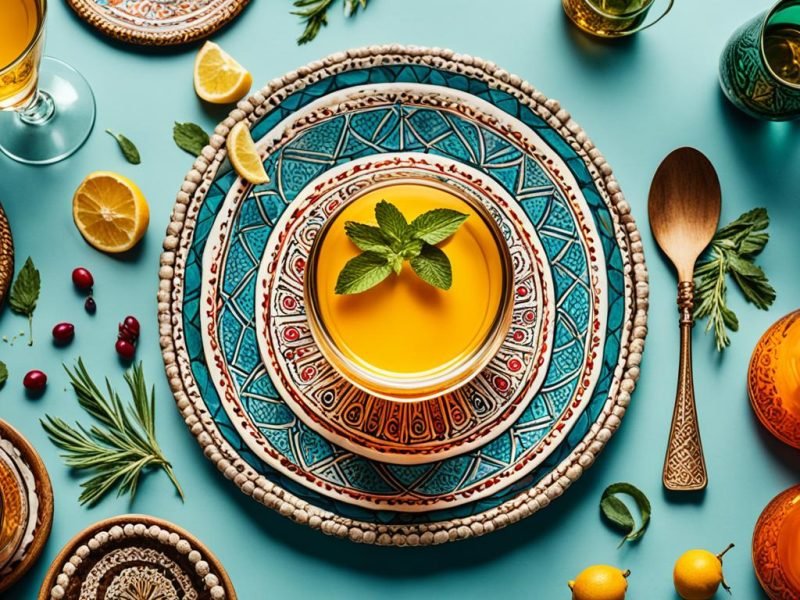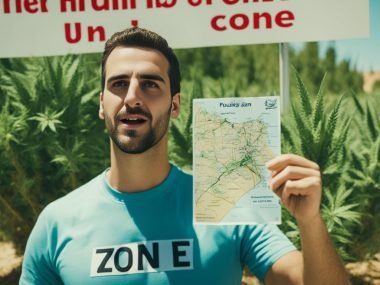As I walked through Tunis’s narrow alleys, the scent of spices mixed with the sea air. This North African gem blends tradition and modernity beautifully. From sipping mint tea in a lively market to the sound of glasses in a peaceful coastal hotel, it offers diverse experiences. The blend of old customs and modern life makes one wonder: What role does alcohol play here? Tunisia’s deep history and the warmth of its people add to this mix, with laws and practices around alcohol adding layers.
Drinking alcohol in Tunisia is both intriguing and complicated. It mixes the secular with the sacred and the past with now. Despite the mainly Muslim population, local wines, beers, and spirits like Boukha have their roots here. In seeing how these drinks fit into Tunisia’s identity, it’s clear the answer isn’t just about alcohol. It’s about the character of a place with many cultural influences and its own story.
Key Takeaways
- Understanding Tunisia’s drinking culture reveals a balance between traditional and modern influences within society.
- Alcohol consumption in Tunisia is permitted, particularly in tourist areas and hotels, highlighting the nation’s accommodating character for visitors.
- Local beverages like mint tea and coffee exist alongside domestic spirits and beers, such as Celtia, reflecting the rich beverage landscape of Tunisia.
- Tunisian alcohol laws and customs provide a framework within which alcohol consumption occurs, showcasing the country’s attempt to honour both heritage and contemporary living.
- The legal aspects of alcohol in Tunisia, such as the age restriction, illustrate the nation’s efforts to balance liberalisation with traditional mores.
The Rich Beverage Tapestry of Tunisia
As I wander through Tunisia’s lively streets, the smells and tastes tell of the nation’s beverage love. The Tunisian mint tea shows the core of their welcoming nature. Coffee and wine in Tunisia mix tradition with French touches. Each drink offers a glimpse into its rich past and global influences.
Traditional Tunisian Mint Tea: A Staple Refreshment
Mint tea in Tunis is unmissable. It’s a favourite drink, often served with pine nuts or almonds. This beverage brings people together, showing Tunisian warmth. You can find it everywhere, from busy markets to quiet home patios. It invites you into the kind heart of Tunisia.
The French Influence: Wine and Citrus Juices
Wine tasting shows Tunisia’s lush French heritage, making great reds and whites. Citrus juices, from abundant orchards, carry French culinary marks. Together, they enrich Tunisia’s drink scene with a touch of elegance.
Tunisian Coffee Culture: From Cafés to Camel Accents
Coffee here is deep in flavour and culture. Cafés like Le Saf-Saf in La Marsa are social hubs. These places buzz with life, enhanced by strong coffee. Tunisian coffee spots are the stage for daily dramas, mixing tradition and lively conversations.
In Tunisia, drinks from mint tea to coffee paint a vivid picture. Friends chatting over wine or café sounds craft my Tunisian journey. Every sip tells a story of this enchanting land.
Do They Drink Alcohol In Tunisia?
In Tunisia, people’s taste in alcohol reflects the country’s rich culture. Tourists and locals enjoy drinking, especially in popular spots. They often choose local beers and spirits. Celtia beer is widely liked. Boukha, a fig spirit, is a traditional choice.
The wine industry shows Tunisia’s long history with grapevines. It’s growing strong even today. Despite being a Muslim-majority country, Tunisia has a legal drinking age of 21. This shows how the country balances tradition with moderate alcohol use.
“Tunisia allows the production and consumption of alcohol under certain legal frameworks, showcasing a blend of tradition and openness.”
I wanted to learn more about how Tunisians use alcohol. This led me to discover a unique balance. Urban areas and tourist places have a relaxed view on drinking. Yet, there’s a strong respect for religious and legal rules on alcohol.
This balance tells us a lot about Tunisia. The country values its traditions and welcomes change. Wine’s history mixes with the modern liking for various drinks. This blend shows Tunisia respects its past while catering to diverse alcohol preferences.
Alcohol Availability and Consumption in Tunisia
Exploring alcohol in Tunisia showcases a mix of tradition and acceptance. The country’s winemaking history shows its comfortable stance towards alcohol. Shows its comfortable stance towards alcohol. However, Tunisian drinking laws mirror the nation’s Muslim culture. Yet, you’ll find alcohol easily, especially in tourist areas and select venues.
Hotels and Tourist Hotspots: An Oasis for Alcohol Seekers
In Tunisia, hotels and tourist spots are key for those wanting a drink. Coastal resorts and the busy hotels in Tunis offer a variety of drinks. Here, travellers and locals share moments over wine or Celtia beer.
The Local Brew: Celtia Beer’s Place in Tunisian Society
Celtia beer isn’t just a drink; it’s a part of Tunisian culture. It’s seen at bars, celebrations, and get-togethers, symbolising tradition and modern fun. Drinking laws in Tunisia ensure that enjoyment stays within cultural and societal limits.
Tunisia’s Legal Drinking Framework
Tunisia expertly balances secular and Islamic traditions in its laws on alcohol. I, as a journalist, see these laws as a mirror to Tunisia’s complex society. The legal drinking age is set at 21. This shows Tunisia’s effort to manage alcohol use wisely.
Understanding Tunisian Alcohol Laws
Tunisia’s alcohol laws control how drinks are made, sold, and drunk. These rules honor the country’s deep culture. They balance religious beliefs with secular habits. Rules ensure alcohol is available but regulated to keep public peace and respect local values.
Age Restrictions and Enforcement
Age laws for drinking are strictly enforced. Sellers check buyers’ age to prevent underage sales. Regular inspections by officials show serious commitment to these laws. This underlines the focus on drinking sensibly.

| Aspect | Detail |
|---|---|
| Legal Drinking Age | 21 years |
| Alcohol Sales Restriction | No sales during specific religious holidays or times |
| Enforcement | Regular checks on establishments; fines for non-compliance |
| Availability | Hotels, Tourist areas, Designated liquor stores |
| Cultural Consideration | Balance between secular traditions and Islamic law |
In my research, it’s clear Tunisia creates its laws to promote moderation with alcohol. These rules safeguard the young and reflect Tunisia’s vibrant culture. It’s about balancing old traditions with modern needs.
Exploring Tunisian Drinking Culture
Tunisia is known for its rich winemaking history and innovative drinks. It boasts of sunny vineyards and unique spirits. This North African country has flavours for everyone, from experts to tourists.
Wine Trails and Ancient Industry Roots
Wine trails here take you back in time. Discovering these paths, I learned about Tunisia’s long history of winemaking. The country’s viticulture has been shaped by many cultures, including Phoenicians, Romans, and Andalusians.
Though Tunisia might not be famous worldwide for wine, locals deeply appreciate it. The dedication seen in vine care and wine production here is impressive.
Figuring Out Fig Liqueurs: The Unconventional Spirits of Tunisia
Boukha, a fig liqueur, shows Tunisia’s unique approach to spirits. My first taste was a real surprise. The rich scent and unique flavour showcase Tunisian creativity in making drinks. These special liqueurs give a peek into a culture that values both tradition and innovation.
Looking back on my adventure, the impact of history, tradition, and modernity on Tunisian drinks is clear. They blend to form a culture as lively and enduring as Tunisia itself.
The Tunisian Alcohol Market: A Statistical Overview
Tunisia’s alcohol market is alive and kicking. It produces an amazing 40 million bottles of wine each year. This caters to both locals and people around the world. It shows how Tunisia blends tradition and modernity in its economy.
Tunisians also love their Celtia beer and Boukha spirit. These drinks are big hits and make up a large part of alcohol consumption. Looking at the numbers, it’s clear that culture and economy go hand in hand in Tunisia.
| Alcohol Type | Annual Production | Market Share |
|---|---|---|
| Wine | 40 million bottles | 60% |
| Celtia Beer | Not Specified | 30% |
| Boukha | Not Specified | 10% |
Celtia and Boukha are more than just drinks. They represent a culture at the crossroads. They show how Tunisia balances modern life with traditional values. This mix of old and new, secular and spiritual, is unique to Tunisia’s alcohol market.
Looking closely at Tunisia’s alcohol stats reveals a strong economic story. The big production and consumption numbers tell us a lot about Tunisia. They show the country’s complex relationship with alcoholic drinks.
Imbibing at the Cultural Crossroads: The Coastal Influence
As I explore Tunisia’s beautiful coastlines, I notice that alcohol is easy to find in coastal areas. These regions are lively with entertainment spots. Bars along the beaches show the blend of Tunisian alcohol preferences with those of tourists, creating a mix of local and international tastes.
Beach Bars and Resort Life: Alcohol’s Role in Tourism
Imagine sitting in a hammock, sipping a cool Celtia, or raising a glass of Tunisian wine. Alcohol adds to the charm of beach holidays. It not only makes holidays more fun but also supports Tunisia’s tourism industry.
Nightlife and Entertainment: Alcohol-Infused Evenings in Tunisia
At night, Tunisia’s coastal cities shine with life. Happy hours start evenings full of music, dancing, and laughter. People enjoy the vibrant nightlife, from sports bars with football games to lounges with electronic music.
Here’s what you might find:
| Entertainment Venue | Popular Drinks | Typical Activities |
|---|---|---|
| Beachfront Bar | Local Wine, Beer, Cocktails | Sundown Parties, Live Music |
| Luxury Resort Lounge | Champagne, Imported Spirits | Cocktail Tasting, Jazz Evenings |
| Sports Bar | Draft Celtia, Boukha | Game Screenings, Pub Quizzes |
Tunisia’s coast is a place where fun and culture meet because of the easy access to alcohol. As I enjoy these vibrant places, I see how the coast deeply influences Tunisia’s drinking scene. It attracts visitors with its lively atmosphere.
Uncovering the Tunisian Palate: Preferred Alcoholic Beverages
The journey into Tunisian alcohol preferences mixes the nation’s rich past with today’s tastes. As someone who loves new tastes, I find Tunisians favour local Tunisian spirits. These reveal traditions and skills.

National Preferences: From Boukha to Imported Delights
Tunisians love their Boukha, a fig brandy. This drink captures the spirit of Tunisia’s fruit groves. Besides Boukha, they also enjoy international drinks. It shows they are open to the world.
Mixing Tradition and Modernity: The Evolution of Tunisian Tastes
Exploring wine tasting in Tunisia is thrilling. It’s great to see how wine combines old and new methods. Tunisian wineries offer tastes for classic lovers and new fans alike.
| Tunisian Beverage | Type | Description | Origin |
|---|---|---|---|
| Boukha | Spirit | A fruity brandy distilled from figs | Local |
| Cedratine | Liqueur | Citrusy liqueur with a zesty lemongrass twist | Local |
| French Wines | Wine | Imported wines popular among connoisseurs | Imported |
| Italian Grappa | Spirit | Highly appreciated among Tunisian spirit aficionados | Imported |
Enjoying a simple glass of Boukha with friends or fancy wine tastings, it all shows Tunisia’s rich alcohol culture. Each drink tells a story, creating more than just taste, but bonds and memories.
Encountering Tunisian Alcohol Laws: A Traveller’s Perspective
Before heading to Tunisia, it’s smart to learn about the Tunisian alcohol laws. Knowing that the legal drinking age in Tunisia is 21 helps visitors respect local traditions. It shows how Tunisia balances its modern tourist appeal with rich cultural values.
Anyone wanting to enjoy local festivities or a wine dinner should understand alcohol consumption in Tunisia. There are many local wines for those interested, thanks to the growing industry. Beer lovers can try Celtia, a popular local brew.
In Tunisian cities and coastal areas, finding alcohol is easy. However, it’s more challenging in rural areas. This difference highlights the country’s varying levels of conservatism.
| Aspect of Alcohol Law | Details for Travellers |
|---|---|
| Legal consuming age | 21 years and older |
| Availability | Accessible mainly in urban and tourist areas |
| Cultural Consideration | Respect local customs, particularly during religious periods |
| Purchase Restrictions | Varies by region; some may have specific days where sale is prohibited |
As a visitor, paying attention to these points is wise when indulging in Tunisian alcohol consumption. Being aware of the laws and cultural differences allows tourists to enjoy Tunisia’s drinks responsibly and respectfully.
The Social Dynamics of Drinking in Tunisia
In Tunisia, the drinking scene is vivid, shaped by its regions and religion. This is especially true when we look at the differences between cities and countryside. People in cities often have a relaxed view on Alcohol consumption in Tunisia. They are open to new ways of living. But, people in rural areas stick to the old ways more. They are cautious about alcohol because of their beliefs and community standards.
Urban vs Rural Consumption Patterns
In cities like Tunis and Sousse, there’s a worldly vibe to Alcohol availability in Tunisia. Here, lively bars and clubs serve drinks from home and abroad, appealing to many tastes. But, in the countryside, you’ll find taverns and local shops. These places reflect the area’s culture and conservative nature, often focusing on drinks without alcohol.
The Impact of Religion on Alcohol Availability
Religion plays a big role in Alcohol availability in Tunisia. It shapes what society thinks is right and influences what can be sold. Islamic teachings, very important in Tunisian life, generally discourage drinking. This means in some places, it’s harder to find alcohol. Yet, the more open-minded city people and tourists from abroad have led to a more balanced view. This takes into account both belief systems and the economy.
| Area | Alcohol Availability | Primary Influences |
|---|---|---|
| Urban Centres | Highly available | Economic growth, Tourism, Western influences |
| Rural Communities | Moderately available | Traditional values, Religious principles |
| Coastal Resorts | Widely available | Tourism, International visitors, Nightlife |
| Religious Towns | Limited availability | Spiritual significance, Conservative attitudes |
Tunisia’s story is one of balance between modernity and tradition, stirring my curiosity. Alcohol is not forbidden. It fits into the Tunisian drinking culture tapestry. This blend of acceptance, tradition, and tourism makes Tunisia a land full of contrasts.
How Tunisia’s Historical Layers Influence Alcohol Consumption Today
Tunisia’s history deeply affects how it views alcohol today. Wine is especially important, not just because of now, but due to its long history. This journey starts with the ancient Punic times, moves through Roman influence, and continues today.
Legacies of the Punic Era
The Influence of the Punic era on Tunisian wine is huge. Drinking Tunisian wine means connecting with ancient civilizations. The Punics were great traders who boosted wine-growing here. Their legacy is clear in the class of today’s Tunisian wine.
From Roman Mosaics to Modern Vineyards
The Bardo Museum’s Roman mosaics show the wine’s role in Tunisia’s past. They depict grape picking and feasts, proving wine’s importance then. This tradition has lasted. Modern vineyards mix old methods with new to make wines that honour this history.
| Historical Era | Influence on Wine Cultivation | Modern Day Reflection |
|---|---|---|
| Punic | Establishment of first vineyards | Tunisian wine varieties with ancient grape lineage |
| Roman | Expansion of wine consumption and trade | Affluent wine tourism and international recognition |
| Contemporary | Incorporation of modern viticulture techniques | Innovative wine production meeting global standards |
To understand Tunisia’s alcohol laws, we must look at its past. The rules today respect tradition while being modern and health-conscious. This shows how long alcohol has been part of Tunisia’s culture.
Exploring Tunisia’s wine heritage reminds me of its depth. The wine isn’t just a drink; it’s a tale of resilience, change, and culture. This enriching story flows from ancient barrels to our glasses today.
Conclusion
Digging into Tunisia’s alcohol habits shows a unique picture, as complex as the country’s own history. Although most people in Tunisia follow Islam, there’s a clear, thriving culture of drinking. Tunisian alcohol rules highlight how religion and culture play a part. Yet, they also show a country keeping up with today’s world. This is seen in cities and places tourists love, proving alcohol’s lasting place in Tunisia.
The story of drinking in Tunisia is a mix of old and new. It celebrates traditional drinks like mint tea and Boukha, a local spirit. It also includes a fun nightlife that attracts both locals and tourists. This mix shows how Tunisia holds onto its past. At the same time, it welcomes new social ways.
But, balancing modern views with religious traditions leads to debates on Tunisia’s alcohol laws and habits. Despite these challenges, alcohol remains a key part of Tunisian life. For many, it’s as important as the country’s beautiful sea views and old buildings.







